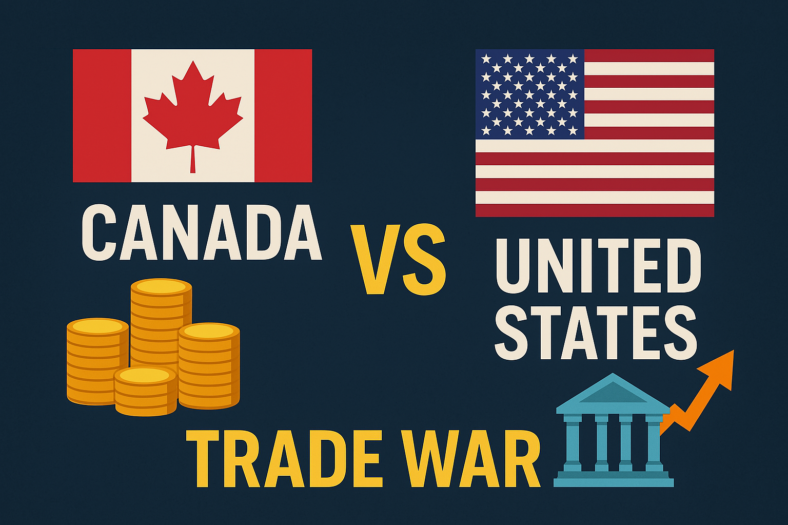Welcome to our comprehensive guide on finding the best private mortgage lender rates in Ontario! Whether you’re a first-time homebuyer, a seasoned investor, or someone looking to refinance, navigating the mortgage market can be a daunting task. With numerous lenders vying for your business and a plethora of mortgage products available, it’s crucial to have a clear understanding of the options available to you.
In this guide, we’ll take you through everything you need to know about private mortgage lenders in Ontario, from understanding what private mortgages are to how to compare rates effectively. We’ll delve into the benefits and drawbacks of working with private lenders, explore the factors that influence mortgage rates, and provide tips on how to secure the most favorable terms for your unique financial situation.
Whether you’re seeking a mortgage for a residential property, an investment property, or a commercial venture, this guide aims to equip you with the knowledge and tools necessary to make informed decisions. By the end of this guide, you’ll have a solid grasp of the Ontario private mortgage market and be well-positioned to secure the best possible rates for your mortgage needs.
So, let’s dive in and explore the world of private mortgage lending in Ontario!
Editor’s Picks: Best Private Mortgage Lender Rates in Ontario
What is a private lender and how do they work?
A private lender is an individual or entity that provides financing to borrowers outside the traditional banking system. Unlike banks or credit unions, which typically have strict lending criteria and regulatory requirements, private lenders often have more flexibility in their lending practices. Private lenders can include individuals, private equity firms, mortgage investment corporations (MICs), and other non-bank financial institutions.
Here’s how private lenders typically work:
Lending Criteria: Private lenders often have more relaxed lending criteria compared to traditional financial institutions. While banks may focus heavily on credit scores and income verification, private lenders may be more interested in the value of the property being used as collateral for the loan.
Collateral-based Lending: Private lenders primarily engage in collateral-based lending, meaning the property being financed serves as security for the loan. This collateral reduces the risk for the lender, allowing them to extend financing to borrowers who may not qualify for traditional mortgages due to credit issues, income variability, or unconventional property types.
Shorter Loan Terms: Private mortgages typically have shorter loan terms compared to traditional mortgages. While traditional mortgages may have terms of 25 to 30 years, private mortgages often range from six months to a few years. Borrowers typically use private financing for short-term solutions, such as bridge financing, construction loans, or when traditional financing is unavailable.
Higher Interest Rates: Private mortgages generally come with higher interest rates compared to traditional mortgages. Since private lenders take on higher risks by lending to borrowers who may not qualify for bank financing, they offset these risks by charging higher interest rates. However, despite higher rates, private mortgages can still be valuable options for borrowers who need quick access to funding or have unique financing needs.
Flexibility: Private lenders can offer more flexibility in terms of loan structure and repayment terms. They may tailor loan packages to meet the specific needs of borrowers, such as interest-only payments, customized amortization schedules, or the ability to finance unconventional properties.
Overall, private lenders play a vital role in the mortgage market by providing alternative financing solutions to borrowers who may not qualify for traditional bank loans. While private mortgages come with certain trade-offs, they offer flexibility and accessibility for individuals and investors seeking financing for real estate transactions.
How to find and choose the best private mortgage lender rates in Ontario
Finding and choosing the best private mortgage lender rates in Ontario requires careful research, comparison, and consideration of several factors. Here’s a step-by-step guide to help you navigate the process effectively:
Understand Your Needs: Before you start your search for a private mortgage lender, determine your specific financial needs and goals. Consider factors such as the type of property you’re financing, your credit history, desired loan term, and your ability to repay the loan.
Research Lenders: Begin by researching private mortgage lenders operating in Ontario. Look for lenders who specialize in your type of property or financing needs. You can find lenders through online searches, referrals from real estate professionals, mortgage brokers, or networking within your local real estate community.
Check Credentials and Reputation: Verify the credentials and reputation of potential lenders. Look for licensed lenders who comply with Ontario’s mortgage regulations. Check online reviews, testimonials, and ratings from previous clients to gauge the lender’s reputation for reliability, transparency, and customer service.
Compare Rates and Terms: Once you’ve identified several potential lenders, request quotes or pre-approval offers from each. Compare the interest rates, loan terms, fees, and other terms offered by different lenders. Pay attention to factors such as the loan-to-value ratio, prepayment penalties, and flexibility in repayment options.
Consider the Total Cost of Borrowing: While low interest rates are important, consider the total cost of borrowing over the life of the loan. Factor in any upfront fees, closing costs, and ongoing expenses associated with the mortgage. Choose a lender that offers competitive rates and reasonable fees to minimize the overall cost of financing.
Evaluate Customer Service and Support: Assess the level of customer service and support provided by each lender. Choose a lender who is responsive, communicative, and willing to address your questions and concerns throughout the borrowing process. A lender who offers personalized guidance and support can make the borrowing experience smoother and less stressful.
Review Loan Documents Carefully: Before finalizing your decision, carefully review the loan documents provided by the lender. Pay close attention to the terms and conditions outlined in the mortgage agreement, including interest rate adjustments, repayment obligations, and any contingencies or conditions.
Seek Professional Advice if Needed: If you’re unsure about which lender or mortgage product is best for your situation, consider seeking advice from a qualified mortgage broker, financial advisor, or real estate lawyer. These professionals can offer unbiased guidance and help you navigate the complexities of private mortgage lending.
By following these steps and conducting thorough due diligence, you can find and choose the best private mortgage lender rates in Ontario that align with your financial needs and objectives.
FAQs about the best private mortgage lender rates in Ontario
A private mortgage lender is an individual or institution that provides financing for real estate transactions outside of traditional banking channels. They often offer more flexible lending criteria and may specialize in providing loans for unique situations or properties.
Private mortgage lender rates tend to be higher than rates offered by traditional banks. This is because private lenders typically take on higher risk by lending to borrowers who may not qualify for conventional mortgages due to credit issues, income variability, or unconventional properties.
Several factors can influence private mortgage lender rates, including the borrower’s creditworthiness, the loan-to-value ratio, the type of property being financed, the loan term, and current market conditions.
To find the best private mortgage lender rates, research and compare rates from multiple lenders. Consider factors such as interest rates, loan terms, fees, and the lender’s reputation and customer service.
Private mortgage lenders offer certain advantages, such as greater flexibility in lending criteria, faster approval processes, and the ability to finance properties that may not qualify for traditional bank loans. They can also be a viable option for borrowers who need short-term financing or have unique financial situations.
Private mortgage lenders typically charge higher interest rates and fees compared to traditional banks. Borrowers may also have less consumer protection and fewer regulatory safeguards when working with private lenders.
Yes, it is often possible to negotiate with private mortgage lenders on rates and terms, especially if you have strong credit or valuable collateral. However, the extent to which you can negotiate will depend on the lender’s policies and your individual financial situation.
Qualification requirements for private mortgage loans vary depending on the lender and the specific loan product. Generally, private lenders will consider factors such as your credit history, income, debt-to-income ratio, and the value of the property being financed.
Navigating the landscape of private mortgage lender rates in Ontario can seem like a daunting task, but armed with the right knowledge and resources, borrowers can secure financing that meets their needs effectively. In this guide, we’ve explored the fundamentals of private mortgage lending, from understanding what private lenders are to how to find and choose the best rates available.
By understanding the factors that influence private mortgage rates, comparing offers from multiple lenders, and carefully evaluating the terms and conditions of each loan, borrowers can make informed decisions that align with their financial goals. While private mortgage lending offers flexibility and accessibility for individuals and investors, it’s essential to weigh the advantages and drawbacks carefully and ensure that the terms of the loan are reasonable and sustainable.
Whether you’re purchasing a home, financing an investment property, or seeking short-term bridge financing, the Ontario private mortgage market offers a range of options to suit diverse needs. By following the guidance provided in this guide and seeking advice from qualified professionals when needed, borrowers can navigate the process with confidence and secure the best possible rates for their mortgage needs.
Remember, finding the best private mortgage lender rates requires patience, diligence, and careful consideration of your unique financial situation. With the right approach, you can achieve your real estate financing goals and move forward with confidence in your financial decisions.
Thank you for exploring the world of private mortgage lending in Ontario with us. We wish you success in your journey to find the best rates and terms for your mortgage needs.




















